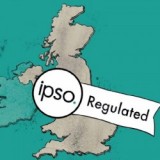 A weekly newspaper apologised for publishing the name of a dead man – even though the press watchdog has since found it was entitled to identify him.
A weekly newspaper apologised for publishing the name of a dead man – even though the press watchdog has since found it was entitled to identify him.
The Northampton Chronicle & Echo said it had “fallen short of its own standards” in publishing the man’s name, despite his identity already being in the public domain at the time.
The newspaper had carried a report on the death of the 85-year-old man in question which occurred after he had waited for nine hours to be seen at Northampton General Hospital.
It also reported that the hospital’s medical director had said, in a leaked email, that the man’s death “was a direct result of emergency department pressures.”
But Vivin Acharya, a relative of the 85-year-old man in question, complained to the Independent Press Standards Organisation about the paper’s coverage of his death, prompting it to print an apology.
The Chronicle & Echo also wrote a private letter of apology to Mr Acharya’s mother, but, after examining the complaint, IPSO cleared the paper of any wrongdoing in relation to its coverage.
The newspaper did not identify the man in its initial report on the story, although it did include details of the events leading up to his death of the man, including the time of his admission to hospital and his treatment thereafter.
However it named him in a follow-up story after the police confirmed his identity, although by that time he had also been named in other publications including the national media.
Complaining under Clause 2 (Privacy) and Clause 4 (Intrusion into grief or shock) of the Editors’ Code of Practice, Mr Acharya claimed that the first article included a level of detail about the circumstances of his relative’s death that was intrusive, while the second article, in naming him publicly, had breached a police embargo which was designed to prevent this from happening prior to the inquest later in the week.
Mr Acharya said that releasing this name had led to unwanted media coverage and contact from other publications, adding he was also concerned that, by referring to “police” having confirmed the man’s name, the second article insensitively led to speculation and confusion regarding the circumstances of the man’s death.
The Chronicle & Echo apologised for the distress the articles had caused the family, but denied any breach of Code.
It said that the information in the first article relating to the patient’s time in hospital had already been made public in a journal article published the previous week, and this had been covered in the national media.
In relation to the naming of the man prior to the inquest, the guidance note from the police had included information on all the inquests on the relevant date, and had been headed “For information only, not for publication or broadcast”, but related to a number of inquests and was not a legal embargo, or subject to any court orders.
The Chronicle & Echo added that a death, and any inquest process initiated, was a matter of public record.
Notwithstanding this, the paper published both the public apology and sent the private apology to the man’s mother.
IPSO found the first article was a follow-up to a story that had been widely covered by a number of media sources and that information about the man’s death, which was already in the public domain, was not handled insensitively.
It further found the fact of the man’s identity was not information about which the complainant had an expectation of privacy because deaths are a matter of public record, while failing to respect a non-binding police embargo, in circumstances where the family were aware of their relative’s death, did not represent a failure to handle publication sensitively.
The complaint was not upheld, and the full adjudication can be read here.





 Follow HTFP on Twitter
Follow HTFP on Twitter
Someone is going to have to explain to me why they have apologised. What did they do wrong? If I was a reporter at the Chron I would be ashamed the paper had done apologised.
Report this comment
‘The Chronicle & Echo added that a death, and any inquest process initiated, was a matter of public record.’
That’s always been my view as well but we now seem to have reached a situation where police do not release the name of the deceased if that is against the wishes of the family – does anyone know whether they’re actually allowed to withhold such information?
Such an approach means reporters are now having to access such info from coroners’ websites – sometimes weeks, or even months, later…
Report this comment
The police are in a difficult situation if a family requests the witholding of a dead person’s name.
It could be argued that the public (and the paper) has no right to know the name. It might be of interest , but is that enough if it is not essential for anyone to know for the public benefit?
Let’s be blunt about this. Those close to the dead person will obviously know. Those not close do not really matter.
Report this comment